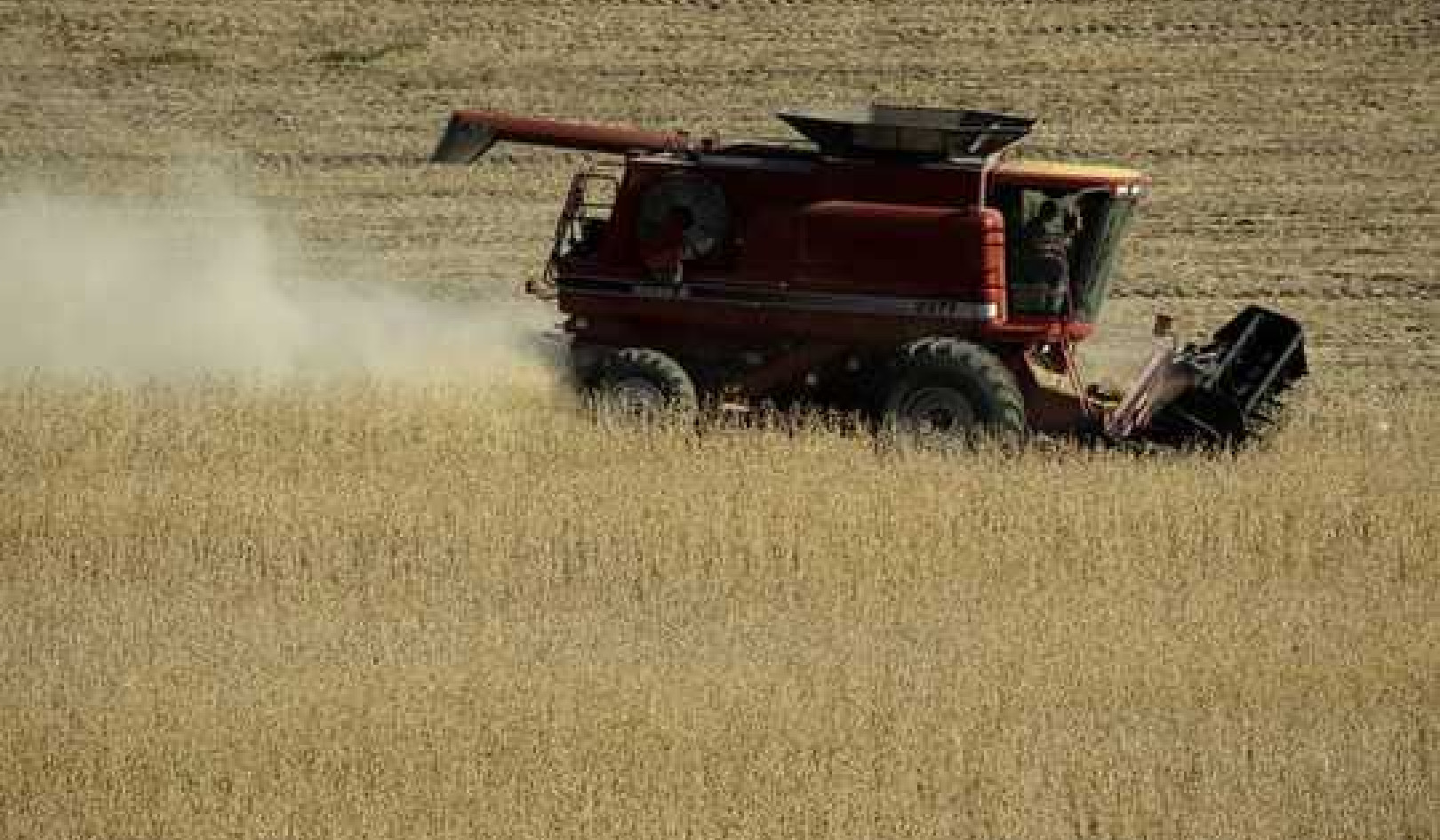
Celebrating America's 250th birthday—will our democracy endure? As fireworks light the sky, the question looms: can we sustain the principles that built this nation for generations to come?
In This Article:
- Is American democracy truly at risk in the 2024 election?
- What does Project 2025 propose, and how could it reshape the U.S. government?
- Why are experts warning about threats to American liberties?
- How might the 250-year mark be a critical moment in America’s democratic experiment?
- What role does citizen engagement play in safeguarding democracy?
Is America’s 250th Birthday at Risk?
by Robert Jennings, InnerSelf.com
Next year, the United States will celebrate its 250th birthday. This is not just a number; it's a reminder of the enduring experiment in democracy that began with the Declaration of Independence in 1776. But history offers us a warning: many empires—long-standing, proud civilizations—have faced monumental transformations or even collapse around this age. Are we headed in that direction? Will we see America's democratic principles reinforced or eroded over the coming years? As we approach this anniversary, evaluating where we stand and how our actions in the coming days and months may determine the future is essential.
As historian Will Durant noted, "A great civilization is not conquered from without until it has destroyed itself within." This profound insight serves as both a warning and a guide. The real threats to democracy may not always come from foreign adversaries but from the decay within—from growing divisions, power grabs, and the erosion of democratic values. If we lose sight of what holds us together, of the ideals that have allowed the U.S. to endure, we risk self-destruction. Today, this warning feels particularly urgent in light of proposed policies and political agendas that seek to overhaul core government structures and social liberties.
A Foreign Threat to American Unity
As the 2024 U.S. presidential election approaches, foreign adversaries, notably Russia, intensify efforts to influence the outcome by sowing discord among Americans. This election, more than ever, is a crucial battleground for the future of our democracy. Recent investigations have revealed that Russian entities are backing targeted disinformation campaigns on social media, supporting specific political agendas by amplifying divisive narratives. For instance, Russian state media funneled nearly $10 million through U.S.-based intermediaries to produce and circulate propaganda videos designed to benefit specific candidates, often without disclosing their foreign origins. Additionally, Russia has leveraged online forums and comment sections on right-wing platforms to seed conspiracy theories, manipulating public opinion by fueling emotionally charged, polarizing content.
This foreign interference strategy exploits pre-existing societal divisions to weaken America's social fabric and undermine trust in democratic institutions. Social media platforms, including Facebook and Instagram, have become the primary channels for these influence operations, allowing misinformation to spread rapidly among users. In response, platforms have taken steps to curb this interference, such as banning Russian state media, but the challenge remains substantial.
What's at Stake?
One of the most comprehensive efforts to reshape the government, Project 2025, has been developed by the Heritage Foundation, a prominent conservative think tank, and over 100 conservative organizations. This nearly 1,000-page document details many changes a potential Republican administration could implement. While it promises to streamline government and advance specific ideological goals, the proposed changes come with significant risks to the fabric of democracy.
Key recommendations in Project 2025 include dismantling various federal departments, imposing new social restrictions, and rolling back critical environmental regulations. If implemented, these changes will fundamentally alter the federal government's role, placing unprecedented power in the executive branch and imposing rigid ideological values on issues that impact millions of Americans. This could lead to a less representative and more authoritarian model of governance, where dissenting voices are silenced, and diversity of thought is seen as a threat.
It's essential to break down some of Project 2025's most significant proposals to understand their potential impact on democracy and society.
Less Oversight, More Executive Power
Project 2025 calls for dismantling entire federal departments, including the Department of Education and the Department of Commerce, arguing that reducing government oversight will increase efficiency. However, these moves carry concerning implications for democracy. A reduced federal role in areas such as education means that ideological agendas, not democratic consensus, could increasingly drive policy at the state and local levels. This shift may allow for a fractured, unequal system of governance where states and localities vary widely in protecting fundamental rights and services.
Additionally, the proposed restructuring would grant more power to the executive branch, concentrating authority in ways that challenge the traditional system of checks and balances. By shrinking certain government agencies and placing more responsibility in the executive's hands, there is less accountability and a greater risk of authoritarian drift. A democratic government's strength lies in its ability to distribute power across branches and levels, ensuring that no one person or group has unfettered control.
Threats to Individual Liberties
One of the most controversial areas in Project 2025 involves proposed limitations on reproductive rights, marriage equality, and personal freedoms. The plan seeks to restrict access to reproductive healthcare, roll back LGBTQ+ rights, and impose conservative social values on a diverse population. This goes against the foundation of American democracy, where individual freedom is paramount. Such policies disregard the principle of separation between personal beliefs and state-imposed mandates.
These proposed policies aim to enforce a one-size-fits-all approach to personal rights. Still, they fail to acknowledge the diversity of the American populace's experiences, beliefs, and values. Limiting reproductive rights or defining marriage by rigid standards does not align with the freedom of choice that democracy promises. A democratic society must allow space for varied beliefs, ensuring that personal liberties are protected even when they differ from the majority or those in power.
Rolling Back Protections in a Climate Crisis
At a time when climate change poses one of the most significant existential threats to humanity, Project 2025 proposes eliminating or drastically scaling back environmental regulations. These policies could undo decades of progress in reducing pollution, protecting endangered ecosystems, and addressing climate change. The plan prioritizes short-term economic gains over long-term environmental sustainability, potentially leaving future generations to face the consequences of these decisions.
Abandoning environmental protections is more than a policy choice—it's a profound moral failure. It sends a message that immediate profits for corporations and specific industries precede the planet's well-being and inhabitants. For a country that has long prided itself on progress and innovation, this approach feels like a step backward, sacrificing the future for temporary gains.
Losing Our Checks and Balances
The cumulative effect of Project 2025's proposals would fundamentally reshape American democracy. By consolidating power within the executive branch and reducing checks on that power, we risk sliding towards a less representative and authoritarian model. Democracies thrive on diversity of thought, dialogue, and compromise. Yet, these proposed changes undermine the balance of power that sustains these ideals.
Policies that limit individual freedoms and favor certain ideologies over others weaken the foundation of democracy. The danger here is not just political but moral: a democracy must protect the rights of all its citizens, regardless of their beliefs or circumstances. When power is centralized and dissenting voices are silenced or marginalized, democracy erodes. This kind of centralization creates a brittle system, where dissent is suppressed rather than integrated, and diversity is seen as a threat rather than a strength.
Safeguarding Our Future
In times of political uncertainty, it's easy to feel powerless. But democracy is not a spectator sport. To prevent internal decay and preserve our democratic values, active citizen engagement is crucial. Voting, advocacy, and participation in civil society are tools every citizen holds to shape the nation's direction. As this election approaches, it's more important than ever to recognize the weight of these responsibilities.
Voting is a powerful act of self-determination, a way to voice values and concerns. However, voting without understanding what's at stake is not enough. Citizens must be informed about the policies proposed by those seeking power and the potential consequences these policies carry. Democracy's strength lies in an engaged and informed electorate capable of holding leaders accountable and advocating for principles that benefit the collective good.
Advocacy doesn't stop at the ballot box. Supporting organizations that protect democratic values, engaging in meaningful dialogue, and demanding transparency from leaders are all ways to build a resilient democracy. It's about countering specific proposals and reinforcing a culture of accountability, empathy, and justice.
A Warning for Our Time
We face a critical decision point as we look toward America's 250th anniversary. Will we heed the warnings of history, the insight of thinkers like Will Durant, and the experiences of past civilizations that allowed themselves to erode from within? Or will we take this opportunity to reaffirm our commitment to democracy, to the ideals that have sustained this nation for centuries?
Empires fall not because they are invaded but because they decay from within. As citizens, we hold the power to prevent this decay. It requires us to be vigilant, compassionate, and deeply engaged. The choices we make now—whether to stand for democracy or to let it slide into authoritarianism—will shape the future of this nation.
As we celebrate 250 years of American democracy, we must commit to the actions that will sustain it. This election, let's vote with intention, understanding that our choices go beyond party lines—they reflect our commitment to a democratic future. The potential shifts outlined in Project 2025, focusing on centralizing power and limiting rights, present a real risk to the America we know and love. This is a call to action, to vote against the policies that threaten democracy, to stand up for our rights, and to reaffirm the principles that define us as a nation.
Defending American Democracy
As we approach this pivotal election, we face a political and moral choice. Donald Trump and the MAGA wing of the Republican Party present an existential threat to self-governance and the American way of life. Their approach is grounded in a disregard for democratic norms, an erosion of individual freedoms, and a concentration of power that undermines the very principles on which our country was founded. To allow such forces to shape our nation's future would be to abandon the ideals of liberty, equality, and justice that have sustained us for nearly 250 years.
The power to shape the future lies with each of us. By voting, advocating, and holding leaders accountable, we ensure that America's 250th year is not a turning point toward decline but a reaffirmation of the democratic spirit that defines us. This is not the time to stand idly by. We must choose leaders who respect our institutions, protect our rights, and uphold the values that make America strong. Let's prove that we are worthy of the freedoms we inherited, that we can rise above division and fear, and that we will not let our democracy, our shared future, be destroyed from within. For those who love America, Harris-Walz's choice is clear.
About the Author
 Robert Jennings is co-publisher of InnerSelf.com with his wife Marie T Russell. He attended the University of Florida, Southern Technical Institute, and the University of Central Florida with studies in real estate, urban development, finance, architectural engineering, and elementary education. He was a member of the US Marine Corps and The US Army having commanded a field artillery battery in Germany. He worked in real estate finance, construction and development for 25 years before starting InnerSelf.com in 1996.
Robert Jennings is co-publisher of InnerSelf.com with his wife Marie T Russell. He attended the University of Florida, Southern Technical Institute, and the University of Central Florida with studies in real estate, urban development, finance, architectural engineering, and elementary education. He was a member of the US Marine Corps and The US Army having commanded a field artillery battery in Germany. He worked in real estate finance, construction and development for 25 years before starting InnerSelf.com in 1996.
InnerSelf is dedicated to sharing information that allows people to make educated and insightful choices in their personal life, for the good of the commons, and for the well-being of the planet. InnerSelf Magazine is in its 30+year of publication in either print (1984-1995) or online as InnerSelf.com. Please support our work.
Creative Commons 4.0
This article is licensed under a Creative Commons Attribution-Share Alike 4.0 License. Attribute the author Robert Jennings, InnerSelf.com. Link back to the article This article originally appeared on InnerSelf.com
Article Recap:
As the United States nears its 250th anniversary, the 2024 election could determine the future of its democracy. Project 2025's proposals aim to consolidate power and impose rigid social policies, putting democratic values and individual liberties at greater risk than ever. This article unpacks what’s at stake and underscores the vital role of informed, active citizens in preserving America’s democratic spirit.
References:
- Timeline of Russia Investigation - Factcheck.org
- Fact-checking warnings from Democrats about Project 2025 and Donald Trump - PBS
- Project 2025 - Wikipedia

Related Books:
On Tyranny: Twenty Lessons from the Twentieth Century
by Timothy Snyder
This book offers lessons from history for preserving and defending democracy, including the importance of institutions, the role of individual citizens, and the dangers of authoritarianism.
Click for more info or to order
Our Time Is Now: Power, Purpose, and the Fight for a Fair America
by Stacey Abrams
The author, a politician and activist, shares her vision for a more inclusive and just democracy and offers practical strategies for political engagement and voter mobilization.
Click for more info or to order
How Democracies Die
by Steven Levitsky and Daniel Ziblatt
This book examines the warning signs and causes of democratic breakdown, drawing on case studies from around the world to offer insights into how to safeguard democracy.
Click for more info or to order
The People, No: A Brief History of Anti-Populism
by Thomas Frank
The author offers a history of populist movements in the United States and critiques the "anti-populist" ideology that he argues has stifled democratic reform and progress.
Click for more info or to order
Democracy in One Book or Less: How It Works, Why It Doesn't, and Why Fixing It Is Easier Than You Think
by David Litt
This book offers an overview of democracy, including its strengths and weaknesses, and proposes reforms to make the system more responsive and accountable.



























